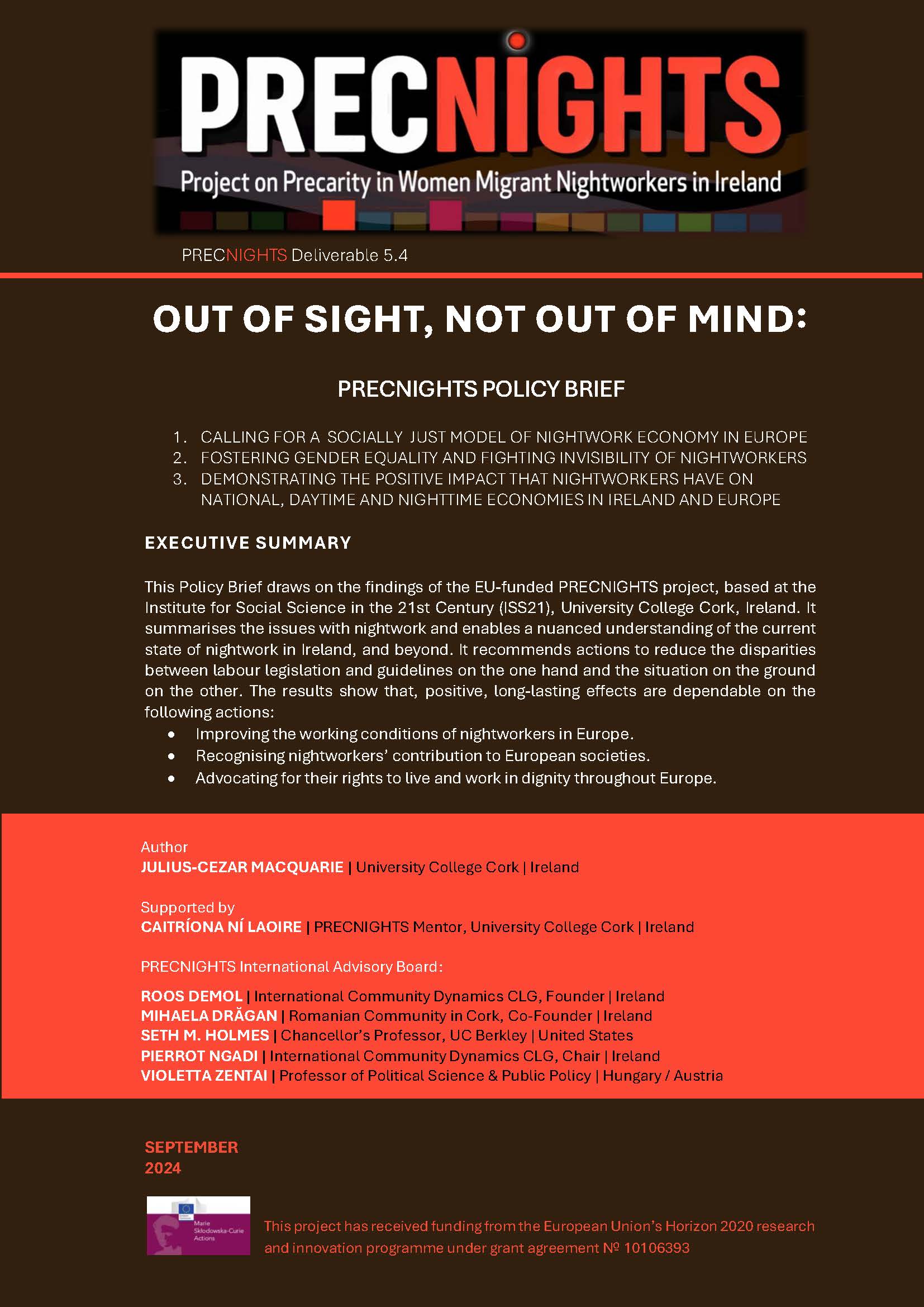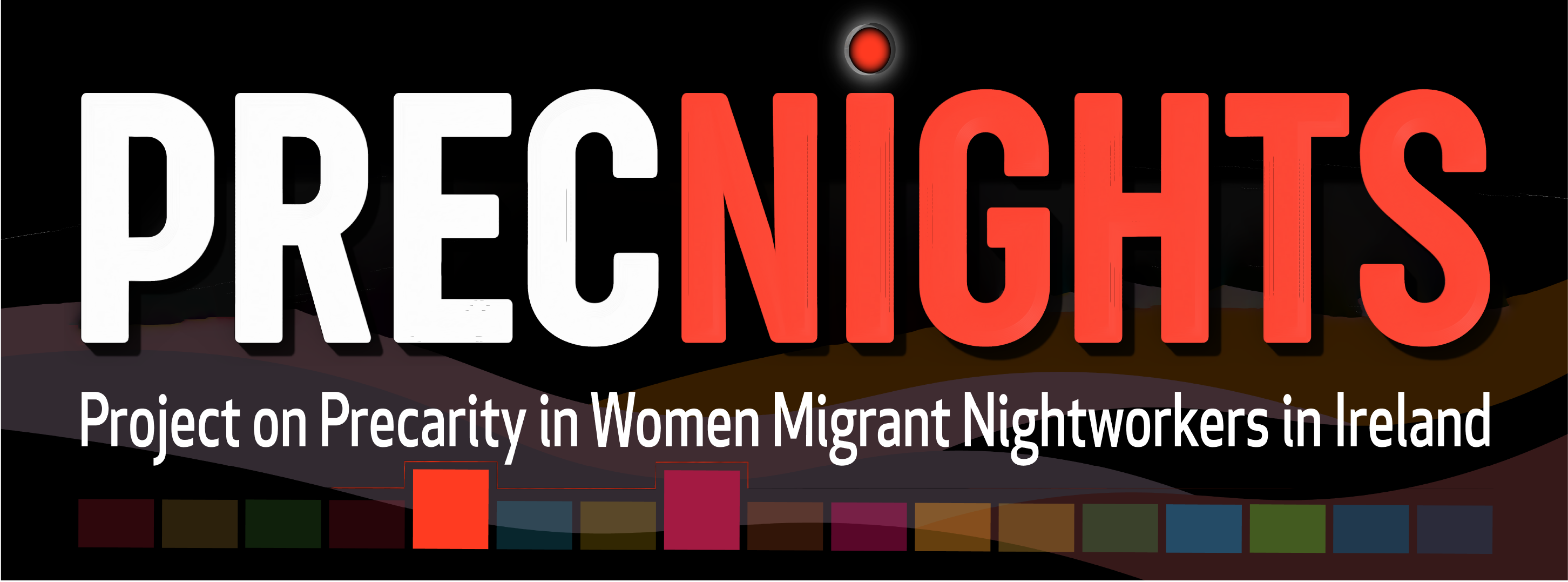News and Highlights
OUT OF SIGHT, NOT OUT OF MIND: PRECNIGHTS POLICY BRIEF

EXECUTIVE SUMMARY
This Policy Brief draws on the findings of the EU-funded PRECNIGHTS project, based at the Institute for Social Science in the 21st Century (ISS21), University College Cork, Ireland. It summarises the issues with nightwork and enables a nuanced understanding of the current state of nightwork in Ireland, and beyond. It recommends actions to reduce the disparities between labour legislation and guidelines on the one hand and the situation on the ground on the other. The results show that, positive, long-lasting effects are dependable on the following actions:
- Improving the working conditions of nightworkers in Europe.
- Recognising nightworkers’ contribution to European societies.
- Advocating for their rights to live and work in dignity throughout Europe.
CONTEXT
Existing policy on nightwork needs to change. Nightworkers need a new deal!
The emergence of a policy landscape on Night Time Economy (NTE)1 is accelerating, in terms of current NTE planning and governance developed by local authorities, nighttime industry associations and non-governmental organisations. Worldwide, however, existing NTE Commissions fail to address fully the health risks, inequality, isolation, and exclusion from mainstream society that nightworkers, especially women, face (see exceptions London Assembly 2018, p. 21). This Policy Brief addresses these specific challenges in nightshift or 24/7 cities, and advocates for better rights to societal integration of (women migrant) nightworkers across Europe.
For more on this story contact:
Author
JULIUS-CEZAR MACQUARIE | University College Cork | Ireland
Supported by
CAITRÍONA NÍ LAOIRE | PRECNIGHTS Mentor, University College Cork | Ireland
PRECNIGHTS International Advisory Board:
ROOS DEMOL | International Community Dynamics CLG, Founder | Ireland
MIHAELA DRĂGAN | Romanian Community in Cork, Co-Founder | Ireland
SETH M. HOLMES | Chancellor’s Professor, UC Berkley | United States
PIERROT NGADI | International Community Dynamics CLG, Chair | Ireland
VIOLETTA ZENTAI | Professor of Political Science & Public Policy | Hungary / Austria


